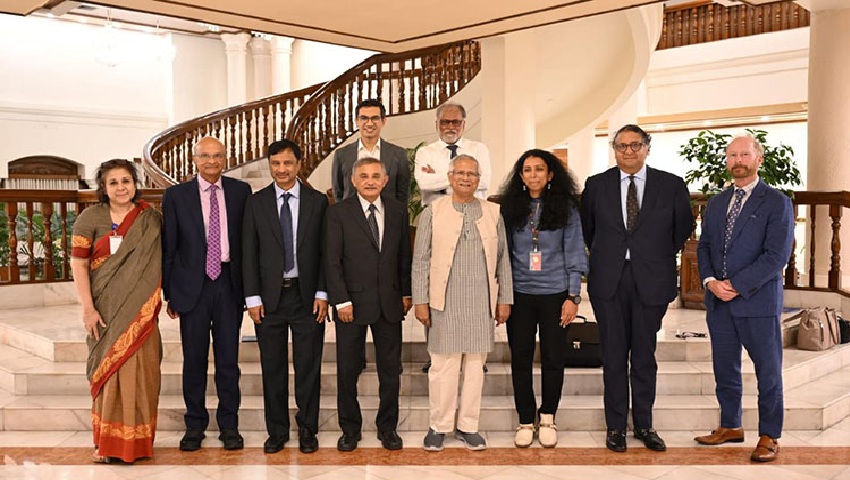Online Report
A United States-based medical technology company, Exo Imaging, is set to launch a revolutionary AI-powered portable ultrasound device in Bangladesh, marking a significant leap forward in the country’s healthcare accessibility; particularly in rural areas.
The announcement was made following a meeting between Exo’s co-founders, Yusuf Haque and Sandeep Akkaraju and Bangladesh’s Chief Adviser, Professor Muhammad Yunus, at State Guest House Jamuna on Thursday.
Yusuf Haque, Exo’s Chief Technology Officer and a Bangladeshi-origin medical technology expert, said the company intends to initially introduce the device in leading hospitals across the country.
Bangladeshi cuisine recipes
The long-term vision is to expand its use to rural and community healthcare centers, where diagnostic facilities are often limited or non-existent.
Haque described the device as portable, efficient and capable of delivering real-time diagnostic insights, saying it could eventually become as common and essential as a stethoscope for doctors and nurses.
“It will revolutionize healthcare across the globe, especially in places like rural Bangladesh,” he said.
Exo’s Chief Executive Officer, Sandeep Akkaraju, stated that Bangladesh will be the first country in Asia to adopt the technology, which is currently approved for use by US Food and Drug Administration (FDA) and is only available in the United States.
He also noted that the company plans to expand into Mexico and several Latin American countries soon.
The AI-powered ultrasound device is capable of early detection of a wide range of health conditions, including heart disease, breast cancer, tuberculosis, lung ailments, thyroid disorders and pregnancy-related complications.
Chief Adviser Professor Muhammad Yunus welcomed the initiative, calling it a transformative step toward achieving universal access to healthcare.
He remarked that the innovation “sounds like science fiction” and praised its potential to dramatically reduce delays in diagnosis, which often worsen patient outcomes.
“As we know, treatment begins with diagnosis. Patients often become more ill while waiting for tests. This technology can help reduce that burden by bringing diagnostics closer to the patient,” he said.
Highlighting the device’s portability, Haque noted that healthcare workers can bring the equipment directly to patients, eliminating the need for travel or long waiting times.
Omar Ishrak, a board member at Exo and former chairman of Intel Corporation, described the device as a game-changer for countries like Bangladesh, where a significant portion of the population lacks access to quality healthcare.
He said the device is especially beneficial for patients with chronic illnesses, such as breast cancer, who require frequent screenings.
“This is essentially the next-generation stethoscope; a powerful tool that provides instant, AI-driven diagnostic insights,” Ishrak said.
Exo is also developing supporting software aimed at improving healthcare workflows.
The software will help healthcare providers prioritize patients based on medical urgency, send follow-up reminders and streamline communication between patients and clinicians.
Akkaraju emphasized that the initiative represents the next phase of telemedicine, offering both portability and intelligence in a single diagnostic tool.
The meeting was also attended by Special Assistant to Chief Adviser Sayedur Rahman, BIDA Executive Chairman Chowdhury Ashik Mahmud Bin Harun and Senior Secretary for SDG Affairs Lamiya Morshed, among others.


